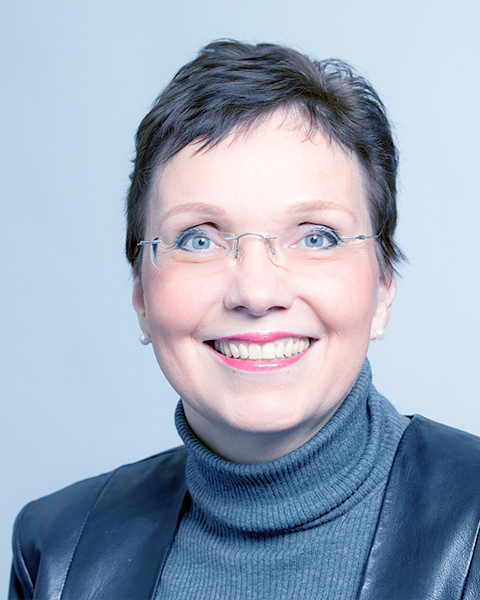
University Medical Center Hamburg-Eppendorf (UKE), Centre for Obstetrics and Fetal Medicine, Laboratory for Experimental Feto-maternal Medicine
Current position
Professor for Experimental Feto-Maternal Medicine at UKE, head of Laboratory
Contact
Tel.: +49 (0) 40 7410 – 51998
Mail: p.arck@uke.de
Role within partner site
Principal investigator within research area of Basic Research
Relevant Work experience
Since 2018 Dean of research, Medical Faculty Hamburg
Since 2010 Professor (W3) and Head of Division for Experimental
Feto-Maternal Medicine, UKE
2008-2010 Canada Research Chair and Professor for Neuroimmunology,
McMaster University Hamilton, Canada
2006-2010 Professor (W2) for Psychoneuroimmunology, University
Medicine Berlin, Germany (leave of absence from 2008)
2001-2006 Group Leader, Charité, University Medicine Berlin, Germany
2001 Habilitation in Immunology and Experimental
Main research focus
Developmental origin of health and disease; effect of maternal stress perception and adverse environmental conditions on pregnancy maintenance, fetal development and long-term children’s health
Publications
Patents N.A.
Additional information
2020 Coordinator, Research Network ‘Pregnancy-acquired health and disease
2017 Editor, Seminars in Immunopathology
2016 Roesslin Award, German Society for Obstetrics and Gynecology
Since 2015 Speaker of the Clinical Research Unit 296
2014 Blackwell Munksgaard Award
2013 Doctor honoris causa, University of Pécs, Hungary
2009 Banting Discovery Award, Canada
2008 Canada Funds for Innovation

University Medical Center Hamburg-Eppendorf (UKE), Centre for Psychosocial Medicine, Department for Sex Research & Sexual Medicine and Forensic Psychiatry
Current position
W3-Professor and Director, Institute for Sex Research, Sexual Medicine,
and Forensic Psychiatry
Contact
Tel.: +49 (0) 40 7410 – 52225
Mail: briken@uke.de
Role within partner site
Principal investigator in research area Clinical Research
Relevant Work experience
2020 Head, Center for Psychosocial Medicine, UKE
Since 2013 Spokesman of the Interdisciplinary Transgender Health
Care Center Hamburg
2010 Chair, Institute for Sex Research, Sexual Medicine, and
Forensic Psychiatry
2006 Habilitation in Psychiatry and Psychotherapy
1998-2006 Postdoctoral research fellow, Department of Human
Medicine, Universität Hamburg
Main research focus
Prevention of sexual and general violence; risk assessment; diagnosis
of forensically relevant (e.g. paraphilic disorders, psychopathy) and
sexual disorders (compulsive sexual behaviour disorder); sexual health;
sexual medicine
Publications
Patents N.A.
Additional information
2020 Hamburg Award Personality Disorder; German Society for the Research and Therapy of Personality Disorders (GePs) e.V.
Since 2016 Member of the Commission on the Independent Inquiry into Child Sexual Abuse in Germany
Since 2014 Consultant for the WHO ICD-11 Working Group on the Classification of Sexual Disorders and Sexual Health
2014 Fellow of the European Society for Sexual Medicine (ESSM)
2013-2016 Vice-president of the International Association for the Treatment of Sexual Offenders (IATSO)
2010-2016 President of the German Society for Sex Research

University Medical Center Hamburg-Eppendorf (UKE), Centre for Experimental Medicine, Department of Systems Neuroscience
Current position
Full professor (W3), Director Department of Systems Neuroscience Adjunct professor, Department of Psychology, Hamburg University
Contact
Tel.: +49 (0) 40 7410 – 54726
Mail: buechel@uke.de
Role within partner site
Principal investigator within research area of Basic Research
Relevant Work experience
2013-2014 Research Fellow, Department of Psychology, Stanford University, USA
Since 2005 Full professor and Director Dep. of Systems Neuroscience,
Universität Hamburg
2000-2005 Head of Junior Research Group funded by the Volkswagenstiftung,
Dep. Of Neurology, Universität Hamburg
1995-1999 Wellcome Trust Research Fellow at the Wellcome Department
of Cognitive Neurology, Institute of Neurology, UCL
1994-1995 Training in Clinical Neurology, Dep. of Neurology, University of Essen
Main research focus
Treatment expectation; hedonic processing; mechanisms of addiction;
mechanisms of acute and chronic pain; emotion regulation; fear and
fear learning
Publications
Patents N.A.
Additional information
2021-2025 ERC advanced grant PainPersist
Since 2019 Fellow Max Planck School of Cognition
Since 2019 Senior Editor for eLife
2018 Scientific Award European Monitoring Centre for Drugs and Drug Addiction (EMCDDA)
2011-2015 ERC advanced grant Placebo
2011 Ernst Jung Preis for Medicine
2011 Gottfried Wilhelm Leibniz-Preis (DFG)
Since 2007 PI of the IMAGEN consortium
Since 2004 Adjunct Professor of Psychology, Dept. of Psychology, Hamburg University
Since 2004 Founding member of the Hamburg Academy of Sciences
2004 Young Investigator Award, Organization for Human Brain Mapping
(OHBM)

University Medical Center Hamburg-Eppendorf (UKE), Centre for Experimental Medicine, Department of Neurophysiology and Neurophysiology
Current position
Professor for Integrative Neuroscience (W3) at UKE; Head of Section Computational Cognitive Neuroscience, Department of Neurophysiology
and Neurophysiology
Contact
Tel.: +49 (0) 40 7410 – 55378
Mail: t.donner@uke.de
Role within partner site
Principal investigator within research area of Basic Research
Relevant Work experience
Since 2019 Head of Section Computational Cognitive Neuroscience, Department of Neurophysiology and Neurophysiology, UKE
Since 2015 Professor for Integrative Neuroscience (W3), UKE
Since 2011 Associated Principal Investigator, Bernstein Center for
Computational Neuroscience Berlin
2009-2015 Assistant Professor, Brain and Cognition Group, Dept. of
Psychology, University of Amsterdam
2006-2009 PostDoc at Center for Neural Science and Dept. of Psychology,
New York University, USA
2003-2006 PostDoc at Dept. of Neurophysiology and Pathophysiology,
UKE; and Donders Institute for Brain, Cognition and Behaviour, Radboud
University Nijmegen, The Netherlands
Main research focus
Dynamics of cognitive computation and cortical circuits; neuromodulation
and arousal; inference and decision-making
Publications
Patents N.A.
Additional information
Since 2017 Board of Reviewing Editors for eLife
2015-2020 Heisenberg Professorship from the German Research Foundation
2006-2008 Postdoctoral fellowship from German Academy of Sciences
(Nationale Akademie der Wissenschaften Leopoldina)
1998-2002 Scholarship award from the German National Academic Foundation (‘Studienstiftung des deutschen Volkes’)
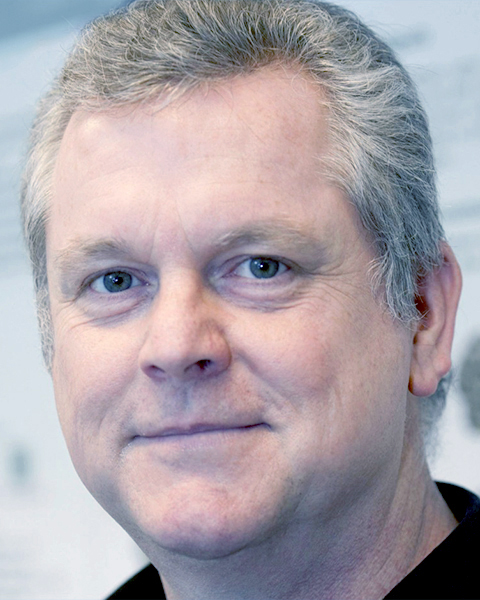
University Medical Center Hamburg-Eppendorf (UKE), Centre for
Experimental Medicine, Department of Neurophysiology and Pathophysiology
Current position
Professor of Physiology (W3), Head of Department of Neurophysiology and Pathophysiology
Contact
Tel.: +49 (0) 40 7410 – 56171
Mail: ak.engel@uke.de
Role within partner site
Principal investigator within research area of Basic Research
Relevant Work experience
Since 2002 Full Professor of Physiology and Director of Dept. of Neurophysiology and Pathophysiology, UKE
2000–2002 Head of Cellular Neurobiology Group, Institute for Medicine, Research Center Jülich
1996–2000 DFG Heisenberg-Fellow and head of research group, Max-Planck-Institute for Brain Research, Frankfurt
1987–1995 Post-Doctoral Fellow, Neurobiology, Dep. of Neurophysiology,
Max-Planck-Institute for Brain Research, Frankfurt
Main research focus
Role of functional connectivity for sensorimotor and cognitive processes;
alteration of networks and functional connectivity in brain disorders; pathophysiological role of neural oscillations; development of
data-driven methods for analysis of network connectivity; modulation
of neural dynamics and functional connectivity by neurostimulation
Publications
Patents N.A.
Additional information
Since 2011 Coordinator of CRC 936 „Multi-site communication in the brain“ (with C. Gerloff, Dept. of Neurology, UKE)
2011–2016 Award of an ERC Advanced Investigator Grant (with P. König, Univ. Osnabrück)
Since 2008 Elected member of the Academy of Sciences and Humanities in Hamburg
Since 2004 Adjunct Professor of Psychology, Dept. of Psychology, Hamburg University
2002 Board Qualification Physiology
1997–1998 Daimler-Benz Fellow, Institute for Advanced Study Berlin
1996–2000 Award of a five-year Heisenberg-Fellowship, DFG
1980–1985 Undergraduate scholarship and doctoral fellowship of the German National Academic Foundation (Studienstiftung des
Deutschen Volkes)

University Medical Center Hamburg-Eppendorf (UKE), Center for Psychosocial Medicine, Department of Psychiatry and Psychotherapy, Institute for Psychotherapy (IfP)
Current position
Professor of Psychiatry and Psychotherapy, Director and Chair of the Department of Psychiatry and Psychotherapy
Contact
Tel.: +49 (0) 40 7410 – 52205
Mail: j.gallinat@uke.de
Role within partner site
Coordinator of the MH-TRN
Relevant Work experience
Since 2014 W3 full professorship and director, UKE, Hamburg
2009–2014 Chief Physician, Psychiatrische Universitätsklinik der Charité im St. Hedwig-Krankenhaus, Berlin
2008 W2 professorship Brain Imaging in Psychiatry, Charité, Berlin
2007-2009 Deputy Director, Clinic for Psychiatry, Charité, Berlin
2006 Habilitation: Neurophysiological indicators of neurotransmitter systems
1998-2007 Senior Researcher, Clinic for Psychiatry, Charité Campus Benjamin Franklin and Campus Mitte, Berlin
Main research focus
Patient-centered, innovative care concepts in severe mental disorders; new motivational training interventions and neuronal plasticity; glutamate, GABA and dopamine pathways in mental disorders
Publications
Patents N.A.
Additional information
Founder: The Hamburg Center for Refugees and Migrants (centra); BGV support program since 2019 (www.centra.hamburg)
Initiator: DFG Major Instrument Program High-field MRI in neuronal plasticity research. DFG INST 337/33-1 FUGG
PI: Hamburg-centred ‘Model of cross-sectoral, coordinated, stepped, evidence-based care of mental disorders (RECOVER)‘, funded by the Innovation Committee (01NVF16018)
PI: GABA-glutamate interaction as neurochemical basis of cerebral resting-state dysfunction in depression and schizophrenia: A 7 tesla multimodal imaging project. DFG GA 707/7-1
Board member: The European Assertive Outreach Foundation (EAOF)
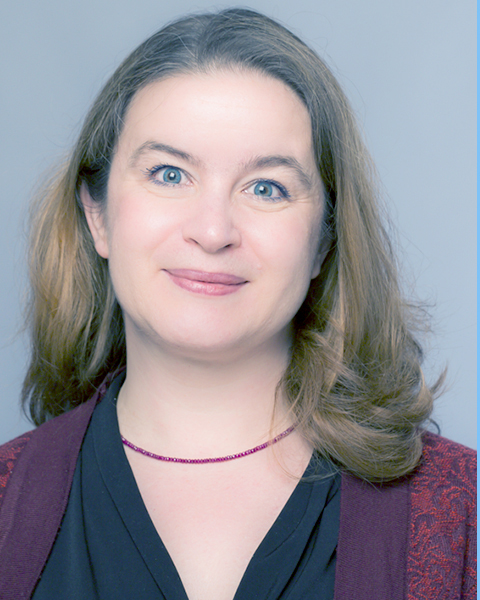
University Medical Center Hamburg-Eppendorf (UKE), Centre for Molecular Neurobiology & Institute of Developmental Neurophysiology
Current position
Full professor (W3), Director of the Department of Developmental Neurophysiology
Contact
Tel.: +49 (0) 40 7410 – 58966
Mail: hangop@zmnh.uni-hamburg.de
Role within partner site
Principal investigator within research area of Basic Research
Relevant Work experience
Since 2013 Full Professor (W3) for Developmental Neurophysiology at UKE
2009-2013 Associate Professor (W2) for Developmental Neurophysiology at UKE
2008-2013 Leader of an independent research group funded by the Emmy Noether-Program of the German Research Foundation (DFG) and the German Ministry of Education and Research (BMBF)
2005-2007 Postdoctoral Researcher at Institut de Neurobiologie de la Méditerranée (INSERM), Marseille, France and University Mainz
2002-2005 Postdoctoral Researcher at University Mainz
1999-2002 PhD studies at University Düsseldorf. Fellow of the Neuroscience
Graduate Program
Main research focus
Development and function of neuronal networks; uni- and multisensory
processing and ontogeny; pathophysiology of neurological and
neuropsychiatric disorders; neuro-immune coupling during development
in health and disease
Publications
Patents N.A.
Additional information
2016-2020 Member of the FENS Committee of Higher Education and Training (CHET)
2015 ERC Consolidator Grant
2014 Funding member of the FENS-Kavli Network of Excellence
2009 Emmy Noether Grant of the German Research Foundation
2008 Du Bois-Reymond-Award of the German Society of Physiology

University Medical Center Hamburg-Eppendorf (UKE), Centre for
Psychosocial Medicine, Department of Medical Psychology & Institute for Psychotherapy (IfP) & Agency for Quality in Medicine (ÄZQ), Berlin
Current position
W3-Professor and Director, Department of Medical Psychology
Contact
Tel.: +49 (0) 40 7410 – 52978
Mail: m.haerter@uke.de
Role within partner site
Principal investigator in research area Clinical Research and Health Services Research
Relevant Work experience
2016 Scientific Director Agency for Quality in Medicine (ÄZQ), Berlin
2008 Chair, Dep. of Medical Psychology (UKE)
2004-2010 Head of Section „Clinical Epidemiology and Health Services Research“, Dep. of Psychiatry and Psychotherapy, University of Freiburg
1998 Research fellow Deutsche Forschungsgemeinschaft (DFG), Yale
University School of Medicine, Dep. of Epidemiology and Public Health
1994-2003 Resident physician and senior researcher, Dep. of Psychiatry and Psychotherapy, University of Freiburg
1988-1994 Research assistant, Dep. of Rehabilitation Psychology, University of Freiburg
Main research focus
Health services & evaluation research; mental health in chronic somatic
illness; depression; patient-centred care, shared decision-making; innovative
care models; guideline implementation; evidence-based care
Publications
Patents N.A.
Additional information
Since 2018 President of the Intern. Shared Decision Making Society
Since 2018 President of the German Society for Medical Psychology
Since 2018 Member Executive Board German Network Health Services Research (DNVF)
Since 2017 Spokesperson Hamburg Network for Health Services Research
2010-2015 Spokesperson of psychenet – Hamburg Network for Mental Health
Since 2008 Member “National Cancer Plan” of the German Federal Ministry of Health
Since 2005 Coordinator National Clin. Practice Guideline “Depression”

University Medical Center Hamburg-Eppendorf (UKE), Center for Psychosocial Medicine, Department of Psychiatry and Psychotherapy
Current position
Professor for Psychiatry and Psychotherapy at UKE, Head of the Centres for Adolescence Psychiatry’, ‘Psychosis and Integrated Care’ and ‘Early Detection and Intervention for Mental Disorders’.
Contact
Tel.: +49 (0) 40 7410 – 57728
Mail: karow@uke.de
Role within partner site
Principal investigator in research area Clinical Research and Health Services Research
Relevant Work experience
Since 2019 Founder of MiNDNET e-Health-Solutions GmbH
Since 2017 PI RECOVER/eRECOVER study, Leader of the Competence Centre for Integrated Care, UKE
2016 Professor of Psychiatry and Psychotherapy
Since 2013 Leader of the Adolescent Psychiatry Unit (inpatient, dayclinic, outpatient), UKE
2011-2012 PI Psychenet/ACCESS III study: Leader of the Therapeutic Assertive Treatment team for Early Psychosis, UKE
Since 2009 Leader of the Early Detection & Intervention Centre, UKE
2008 Venia legendi in Psychiatry and Psychotherapy and senior lecturer
(Habilitation) in Psychiatry and Psychotherapy/UHH
2002-2004 Research fellow and investigating physician, German Heroin
Project, Hamburg, Hannover, Cologne
2001-2002 Psychiatric registrar and research Fellow, Orygen Youth Health, University of Melbourne, Australia
1999-2001/2005-2009 Psychiatric registrar at the Dep. of Psychiatry and Psychotherapy and at the Dep. of Neurology, UKE
Main research focus
Transition psychiatry: Early detection and intervention in child and adolescent,
and young adults at risk/early course of serious mental illness (SMI); development and translation of innovative healthcare models from research to clinical practice (integrated and stepped care therapeutic assertive community treatment, managed care, e-health); patient reported outcomes and healthcare resources: health related quality of life and cost effectiveness in SMI and innovative care models
Publications
Patents N.A.
Additional information
2016 Task Force Transitional Psychiatry of the DGPPN, Leader Early Detection Team
2009 Department for Prevention in Mental Health, DGPPN

University Medical Center Hamburg-Eppendorf (UKE), Centre for Psychosocial Medicine, Department of Medical Sociology
Current position
W3-Professor and Director, Department of Medical Sociology
Contact
Tel.: +49 (0) 40 7410 – 57849
Mail: o.knesebeck@uke.de
Role within partner site
Principal investigator in Health Services Research
Relevant Work experience
Since 2010 Chair and Director of the Institute of Medical Sociology, UKE
Since 2004 Professor of Medical Sociology, UKE
1995-2004 Research associate and senior researcher at the Institute of Medical Sociology, University of Düsseldorf
1993-1995 Research associate at the Department of Sociology, University of Düsseldorf
Main research focus
Social determinants of health and healthcare; evaluation research; public
mental health; international comparisons in health services research;
health surveys; health literacy; stigma
Publications
Patents N.A.
Additional information
Since 2019 Chief Editor of the International Journal of Public Health
2018-2020 President of the German Society of Medical Sociology
Since 2017 Spokesman of the Centre for Health Care Research (CHCR) at the UKE

University Medical Center Hamburg-Eppendorf (UKE), Center for Psychosocial Medicine, Department of Health Economics and Health Services Research & Hamburg Centre for Health Economics, Universität Hamburg
Current position
W3-Professor and Director, Department of Health Economics and Health Services Research
Contact
Tel.: +49 (0) 40 7410 – 54464
Mail: h.koenig@uke.de
Role within partner site
Principal investigator in research area Health Services Research
Relevant Work experience
Since 2010 Professor of Health Services Research and Health Economics, University Medical Centre Hamburg-Eppendorf
2006-2010 Director of the Centre for Prevention and Rehabilitation, University
of Leipzig
2003-2010 Professor of Health Economics, University of Leipzig
1996-2003 Research fellow, Dept. of Health Economics, University of Ulm
1995-1996 Research fellow, Dept. of Health Systems Research, University of Tübingen
Main research focus
Cost-of-illness studies; empirical and model-based cost-effectiveness
analyses; measurement of preferences for health and healthcare
Publications
Patents N.A.
Additional information
2018-2019 President of the German Health Economics Association
Since 2012 Member of the Executive Board of the German Health Economics
Association
2000 Research Award „Smoke-free life“
1999 IMS Health Award
1993-1994 Scholarship from the Deutscher Akademischer Austauschdienst
(DAAD)
1985-1992 Scholarship from the Studienstiftung des deutschen Volkes

University Medical Center Hamburg-Eppendorf (UKE), Center for Psychosocial Medicine, Department of Psychiatry and Psychotherapy & Max Planck Institute for Human Development, Lise-Meit- ner-Group for Environmental Neuroscience
Current position
Professor for Neural Plasticity in the Therapy of Psychiatric Disease at UKE, Lise Meitner Group Leader at the Max Planck Institute for Human Development
Contact
Tel.: +49 (0) 40 7410 – 55201
Mail: skuehn@uke.de
Role within partner site
Principal investigator within research area of Basic Research
Relevant Work experience
Since 2019 Lise-Meitner-Group leader at Max Planck Institute for Human Development in Berlin
Since 2016 Heisenberg Professor for Neural Plasticity in Psychiatric Disease (W3) at University Clinic Hamburg-Eppendorf
2012-2016 Senior researcher (W2), leader of the “Mechanisms and Sequential Progression of Plasticity” group at the MPI for Human
Development
2012 Habilitation in Psychology at Humboldt University, Berlin
2010-2012 Postdoc at Charité University Clinic, Berlin and Ghent University, Belgium
2009-2010 Postdoc at University College London, UK (lab of Patrick Haggard)
Main research focus
Brain and behavioural plasticity in health and psychiatric disease; training
interventions targeted at facilitating plasticity; effects of lifestyle and
environmental factors on plasticity
Publications
Patents N.A.
Additional information
Since 2016 ERC starting grant ‘Take Control! Towards novel training regimes enhancing inhibition and impulse control in health and psychiatric disease’, 1.5 mio.
2016 Heisenberg Professorship from the German Research Foundation
2016 Jacobs Foundation Research Fellowship
2005 Admittance to the Studienstiftung des deutschen Volkes (German sponsorship organisation for the academically gifted)
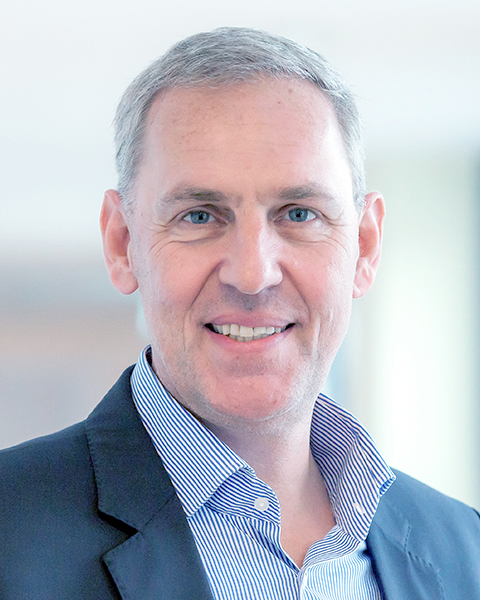
University Medical Center Hamburg-Eppendorf (UKE), Center for Psychosocial Medicine, Department of Psychiatry and Psychotherapy
Current position
Senior consultant, Head of the Centres for ‘Psychosis and Integrated Care’ and ‘Early Detection and Intervention for Mental Disorders’.
Contact
Tel.: +49 (0) 7410 – 24041
Mail: lambert@uke.de
Role within partner site
Principal investigator in research area Clinical Research and Health Services Research
Relevant Work experience
Since 2019 Founder of MiNDNET E-Health-Solutions GmbH
Since 2005 head of ‘Centre for Psychosis and Integrated Care’
Since 2005 head of Research group on “Serious Mental Illness, Early Detection and Integrated Care”
Since 2003 head of the ‘Early Detection and Intervention Centre for Mental Disorders’.
2000-2002 Research fellow, Orygen Youth Health, University of Melbourne,
Australia
Main research focus
Care models; specifically, for people with serious mental illness and stepped care models; early detection and intervention in serious mental illness; e-mental-health with focus on more servere illnesses
Publications
Patents N.A.
Additional information
2017 Development of a new care model (RECOVER), which was awarded by the professional society as the ‘future model of psychiatric care in Germany’ in 2019
Since 2016 Member of the task force ‘severe mental illness’ at the German Society for Psychiatry, Psychotherapy, Psychosomatics and Neurology (DGPPN)
Since 2015 Member of the board of the European Society on Integrated Care and Assertive Outreach (EAOF)
Since 2014 Member of the task force ‘early detection and intervention’ at the DGPPN

Universität Hamburg (UHH), Institute of Psychology, Department of
Clinical Psychology and Psychotherapy
Current position
W3 Professor for Clinical Psychology and Psychotherapy, UHH (since 2011); Director of the Psychological Outpatient Clinic at UHH (since 2011); Scientific Director of PTA Hamburg (Training Institute for Clinical Psychologists, since 2016)
Contact
Tel.: +49 40 42838-5360
Mail: klinische.psych@uni-hamburg.de
Role within partner site
Principal investigator within research area of Clinical Research
Relevant Work experience
2010 Recognition as Supervisor for Behaviour Therapy
2008 Habilitation in Psychology, in particular Clinical Psychology and Psychotherapy at Philipps-Universität Marburg, Germany
2005 – 2011 Senior Lecturer for Clinical Psychology, Philipps-Universität Marburg, Germany & Member of Scientific Committee of the Outpatient and Research Clinic Universität Marburg
2003 – 2005 Therapist and researcher in the Clinic for Forensic Psychiatry, Haina (Kloster), Germany
2000 – 2004 Qualification training at IPP Münster to become a Licensed Clinical Psychologist (German: Approbation)
2000 – 2003 PhD (Dr. rer. nat.) Philipps-Universität Marburg, Germany
Main research focus
Identifying social risk factors for psychotic symptoms; understanding the mechanisms that translate social risk-factors into psychotic symptoms; developing and evaluating psychological therapies for psychosis; improving dissemination of evidence-based interventions for psychosis
Publications
Patents N.A.
Additional information
Since 2019 Member of Akademie der Wissenschaften Hamburg Several keynotes/invited talks (e.g. invited talk at upcoming 2021 Congress of the Schizophrenia International Research Society (SIRS))
2018 Keynote at the 48th Annual Congress of the European Association for Cognitive-Behavioral Therapy held in Sofia, Bulgaria
2009 DGVT-Award for Behaviour Therapy in the Psycho-Social Implementation
2007-2008 Beck Institute scholar for the academic year 2007-2008
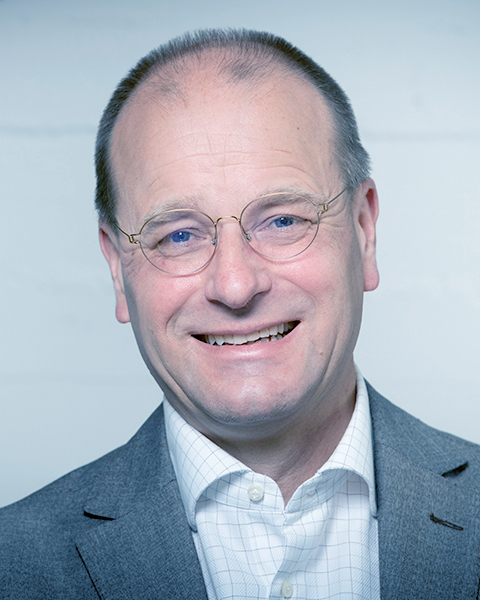
Max Planck Institute for Human Development, Centre for Lifespan Psychology,
Max Planck UCL Centre for Computational Psychiatry and Ageing Research
Current position
Director at the Max Planck Institute for Human Development
Contact
Tel.: +49 30 82406-572/573
Mail: seklindenberger@mpib-berlin.mpg.de
Role within partner site
Principal investigator within research area of Basic Research
Relevant Work experience
Since 2014 Director (with Ray Dolan, UCL) of Max Planck UCL Centre for Computational Psychiatry and Ageing Research
Since 2003 Scientific Member of Max Planck Society and Director of Max Planck Institute for Human Development
1999-2003 Professor of Psychology, School of Psychology, University of the Saarland
Main research focus
Lifespan cognitive neuroscience: Behavioural and neural plasticity across the lifespan; brain-behaviour relations across the lifespan; multivariate developmental methodology; formal models of behavioural change
Publications
Patents N.A.
Additional information
Since 2019 Fellow, Max Planck School of Cognition
2011 Mentoring Award of the German Psychological Society’s (DGPs) Section on Lifespan Psychology
Since 2010 Fellow, Association for Psychological Science
2010 Gottfried Wilhelm Leibniz Prize 2010
Since 2009 Fellow, American Psychological Association, Division 20
Since 2006 Fellow, Gerontological Society of America
Since 2006 Member, German Academy of Sciences Leopoldina, Section Empirical Psychology and Cognitive Sciences

University Medical Center Hamburg-Eppendorf (UKE), Centre for
Experimental Medicine, Department of Systems Neuroscience
Current position
Emmy-Noether Independent Junior Research Group Leader
Contact
Tel.: +49 (0) 40 7410 – 55769
Mail: t.lonsdorf@uke.de
Role within partner site
Principal investigator within research area of Basic Research
Relevant Work experience
Since 2019 Emmy-Nöther Independent Junior Research Group Leader
(DFG)
2013-2020 PI, CRC 58 “Fear, Anxiety, Anxiety Disorders”
2010-2013 PostDoc, Inst. for Systems Neuroscience (UKE)
2006-2010 PhD in Clinical Neuroscience (Karolinska Institutet,
Stockholm, Sweden)
Main research focus
Experimental psychopathological models of fear & anxiety; life adversity; individual differences, translation; psychophysiology; methods with a focus on translational methods
Publications
Patents N.A.
Additional information
Since 2020 Program Committee DFG Priority Program 2317 “METAREP” (A Meta-scientific Programme to Analyse and Optimise Replicability in the Behavioural, Social, and Cognitive Sciences)
Since 2020 Co-Speaker “IGOR“ (Special Interest Group Reproducible and Open Science”), German Psychological Society, Biological Psychology section
2020 Commission Award (Society for the Improvement of
Psychological Science, SIPS)
Since 2019 DFG Emmy Noether Independent Junior Research Group Leader (1.55 Mio Euro)
Since 2015 Speaker DFG Scientific Network “EIFEL-ROF” (European Interdisciplinary Study of Fear and Extinction Learning as well as the return
of fear)

University Medical Center Hamburg-Eppendorf (UKE), Center for Psychosocial Medicine, Department of Psychosomatic Medicine and Psychotherapy & Institute for Psychotherapy (IfP)
Current position
W3-Professor and Director, Department of Psychosomatic Medicine and Psychotherapy; Director, Institute for Psychotherapy (IfP)
Contact
Tel.: +49 (0) 40 7410 – 59733
Mail: b.loewe@uke.de
Role within partner site
Principal investigator in research area Clinical Research and Health Services Research
Relevant Work experience
Since 2018 W3 full professorship and director, Dep. of Psychosomatic Medicine and Psychotherapy, UKE
Since 2017 Director Institute for Psychotherapy (IfP), UKE
2007 – 2018 W3 endowed professorship and director, Dep. of Psychosomatic Medicine and Psychotherapy, UKE, and Head Physician, Schön Clinic Hamburg-Eilbek, Hamburg, Germany
2007 Extraordinary professorship, UKH
2004 – 2007 Chief consultant and head of research, Dep. of Psychosomatic and General Clinical Medicine, UKH
2003 – 2004 DFG research fellow / Max Kade Foundation, Regenstrief Institute, Indiana University School of Medicine, Indianapolis, USA
1996 – 2003 Junior physician and research assistant, Dep. of Psychosomatic and General Clinical Medicine, University Medical Center Heidelberg (UKH), Germany
Main research focus
Somatic symptom and related disorders; comorbidity in patients with somatic
diseases; eating disorders; clinical and health services research; research on psychotherapy, diagnostic & psychometrics
Publications
Patents N.A.
Additional information
2020 – 2023 Elected member, DFG review board FK 205-02 (medicine: public health, medical health services research, social medicine)
2020 Wayne Katon Research Award of the ACLP, USA
Since 2019 Appointed by the APA to revise the DSM-5 section on somatic symptom disorders
Since 2017 Deputy Head, Centre for Internal Medicine, UKE
Since 2016 Speaker, European Network to improve diagnosis, treatment and healthcare for patients with persistent somatic symptoms (EURONET-SOMA)

University Medical Center Hamburg-Eppendorf (UKE), Center for Psychosocial Medicine, Department of Psychiatry and Psychotherapy
Current position
Research group lead “Social Psychiatric and Participatory Research”
Contact
Tel.: +49 (0) 74 10-5 89 33
Mail: c.mahlke@uke.de
Role within partner site
Principal investigator in research area Involvement of Patients, Carers, and the Public
Relevant Work experience
2020 Lead/PI: ImpPeer-Psy5: Peerbegleitung in der psychiatrischen Versorgung – Implementierungsbedingungen im SGB V – UKE
2019 Lead Res. Group “Social Psychiatric and Participatory Research”; Lead/PI: HoPe: Peer Support Hometreatment Intervention – UKE
2018 Lead/PI: UPSIDES: Using peer-support in developing empowering mental health services – UKE
2017 PhD thesis: “Peer-support for individuals with severe mental illness and their carers” UHH
2016-2018 PI: ZVP Reduction of coercive measures – UKE/UHH
2015-2018 PI: EmPeeRie: Empower peers for research – UKE
2015-2017 PI: BAESCAP Peer-support in community treatment – UKE
2014 Co-Lead and founding: Research Group “Social Psychiatric and Participatory Research – UKE
Main research focus
Peer Support; participatory research; consumer and carer led health services evaluation and implementation research; rights-based & patient-centered care; informed decision-making; innovative peer support intervention and care models; guidelines implementation peer support; evidence-based trainings for the community and mental health staff; stigma; recovery orientation; empowerment; coercion avoidance
Publications
Patents N.A.
Additional information
Since 2020 GACD taskforce mental health in Covid-19
2020 – Antistigma Award: Evidence based, peer-led training to avoid coercion for mental health staff
Since 2018 contributing member GACD/MHIN
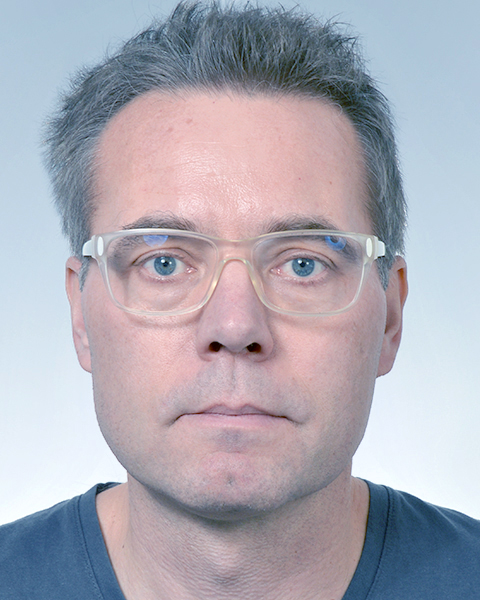
University Medical Center Hamburg-Eppendorf (UKE), Center for Psychosocial Medicine, Department of Psychiatry and Psychotherapy
Current position
Professor for Clinical Psychology at the Department of Psychiatry and Psychotherapy, head of the Neuropsychology unit
Contact
Tel.: +49 (0) 40 7410 – 56565
Mail: moritz@uke.de
Role within partner site
Principal investigator within research area of Clinical Research
Relevant Work experience
2004 Habilitation in Psychology at Universität Hamburg, psychology department
2001 Postdoc at University British Columbia, Canada (lab of Peter Graf)
Since 1997 Neuropsychology unit at the University Medical Center Hamburg-Eppendorf (UKE), Center for Psychosocial Medicine
Main research focus
Development of low-threshold digital interventions; training interventions
targeted at cognitive biases; moderators of neurocognitive malperformance
in psychiatric disorders
Publications
Patents N.A.
Additional information
2011 Hamburg Award Personality Disorders by the Society for the Research and Therapy of Personality Disorders (GEPS)
2010 Psychotherapy award by the German Association for Psychiatry, Psychotherapy and Psychosomatics (DGPPN)
2004 Award of the Society for Neuropsychology (GNP) for his achievements
2000 Young Researcher Award at the schizophrenia congress in Bern
1997 Stipend for the academically gifted Universität Hamburg

University Medical Center Hamburg-Eppendorf (UKE), Center for Psychosocial Medicine, Department of Child and Adolescent Psychiatry and Psychotherapy
Current position
Professor for Child Public Health and Health Care Services Research for Children and Adolescents; Head of Research of the Department of Child and Adolescent Psychiatry and Psychotherapy
Contact
Tel.: +49 (0) 40 7410 – 52992
Mail: ravens-sieberer@uke.de
Role within partner site
Principal investigator in research area Health Services Research
Relevant Work experience
Since 2008 Professor for Child Public Health and Health Care Services Research for Children and Adolescents at the UKE, UHH
2007-2008 Prof. for Psychosocial Health Care Services Research and Health Psychology at the School of Public Health, University of Bielefeld
2005-2006 Honours Prof. for Clinical Psychology, Free University Berlin
2004-2005 “Research Officer Child Health”, World Health Organization, European Office for Investment in Health & Development, Venice, Italy
2000-2006 Associate Prof. and Head of research group “Indicators of Child & Adolescent Health” at the Robert Koch-Institute, Berlin
1997-2000 Scholarship holder, res. assistant, Dep. of Medical Psychology, UKE
1995-1997 Res. assistant, Dep. of Psychosomatic Medicine, Technical University of Munich
Main research focus
Eur. epidemiological studies on mental health and health-related quality of life (QoL) in children and adolescents; methods and instruments to assess mental health and health-related QoL in children and adolescents; healthcare research for chronical illnesses and psychosocial interventions, prevention and health promotion
Publications
Patents N.A.
Additional information
Since 2016 Member of the scientific advisory board of the National Prevention
Conference
Since 2011 Board Member of the German Centre for Addiction Issues
2010-2015 Board Member Centere for Health Care Research, UKE
2010-2013 Board Member Fed. Ass. Prevention and Health Promotion
2006-2010 Director Collaborating Centre for Child of Adolescent Health Promotion of the World Health Organization (WHO)
2006-2008 Board Member German Society for Child and Adolescent Psychiatry (DGKJP)

Biological Psychology and Neuropsychology, Faculty of Psychology and Human Movement, Universität Hamburg
Current position
Full Professor for Biological Psychology and Neuropsychology, Universität
Hamburg; Adjunct Professor at the Faculty of Medicine, Hamburg-Eppendorf
Contact
Tel.: +49 40 42838-3251
Mail: brigitte.roeder@uni-hamburg.de
Role within partner site
Principal investigator within research area of Basic Research
Relevant Work experience
Since 2003 Full Professor (C4, since 2010: W3), Universität Hamburg
2000-2003 Emmy Noether fellow (German Research Foundation); Psychology
Department, Philipps-University Marburg
1997-2000 Research and Teaching Associate Psychology Department, Philipps-University Marburg
1995-1997 Postdoc; Department of Psychology and Neuroscience (Prof. Dr. H.J. Neville); University of Oregon, Eugene (U.S.)
Main research focus
Developmental Cognitive Neuroscience with a focus on the mechanisms of change (neuroplasticity and learning)
Publications
Patents N.A.
Additional information
Since 2019 Member of the senate of the German Research Foundation (DFG)
Since 2019 Chair of the committee for graduation, Psychology Department,
Universität Hamburg
Since 2017 Member of the scientific advisory board at the Max Planck Institute for Empirical Aesthetics, Frankfurt/M
Since 2015 Member of the committee for Life Sciences of the German National Academy Leopoldina
2016-2019 Member of the review board (Psychology: 110) of the German Research Foundation (DFG)

University Medical Center Hamburg-Eppendorf (UKE), Center for Psychosocial Medicine, Department of Medical Psychology, Centre for Interdisciplinary Addiction Research (ZIS) & UHH
Current position
Head, Trauma and Stress Research Group, Department of Psychiatry and Psychotherapy, UKE; Director, Centre for Interdisciplinary Addiction Research (ZIS), UHH
Contact
Tel.: +49 (0) 40 7410 – 59290
Mail: i.schaefer@uke.de
Role within partner site
Principal investigator within research area of Clinical Research
Relevant Work experience
Since 2019 Head, Coordinating Center for Traumatised Refugees, Federal
State of Hamburg
Since 2017 Director, Center for Interdisciplinary Addiction Res., UHH
Since 2012 Senior Physician, Department of Psychiatry and Psychotherapy,
UHH
2010-2017 Managing Director, Center for Interdisciplinary Addiction Research,
Universität Hamburg
2010 Habilitation in Psychiatry and Psychotherapy, UHH
2010 Res. Associate, Institute of Psychiatry, King’s College, London
2002-2009 Resident and Research Fellow, Department of Psychiatry and Psychotherapy/Department of Neurology, Universität Hamburg
Main research focus
Psychotraumatology; role of early adversity in mental disorders; comorbidity
research; addiction research; psychotherapeutic research; migrants
mental health
Publications
Patents N.A.
Additional information
Since 2020 Advisory Panel, EU Centre of Expertise for Victims of Terrorism
Since 2020 Member, National Council on Childhood Sexual Abuse
Since 2020 Spokesperson, BMBF-Networks Mental Health in Refugees
2016-2019 President, European Society for Traumatic Stress Studies
Since 2014 Coordinator German S3-Guideline PTSD
2014-2016 President, Germanspeaking Society for Psychotraumatology

University Medical Center Hamburg-Eppendorf (UKE), Center for Psychosocial Medicine, Department of Medical Psychology
Current position
Head of research group Patient-Centered Care: Evaluation and Implementation
Contact
Tel.: +49 (0) 40 7410 – 57135
Mail: i.scholl@uke.de
Role within partner site
Principal investigator in research area Health Services Research
Relevant Work experience
Since 2017 Head of Junior Research Group in Health Services Research (Nachwuchsgruppe Versorgungsforschung) funded by Federal Ministry of Education and Research (BMBF)
2016 – 2017 Visiting scientist, The Dartmouth Institute for Health Care Policy and Clinical Practice Dartmouth College, NH, USA
Since 2013 Head of research group, Dep. of Medical Psychology, University Medical Center Hamburg-Eppendorf
Since 2008 Research associate, Dep. of Medical Psychology, University Medical Center Hamburg-Eppendorf
2005 – 2008 Research assistant, Dep. of Psychiatry and Psychotherapy, University of Freiburg
Main research focus
Health services research; implementation research; patient-centered care; shared decision-making; communication in healthcare; patient-reported experience measures
Publications
Patents N.A.
Additional information
Since 2018 Member of the scientific advisory board of the German Network of Health Promoting Hospitals and Health Services
2018 – 2020 Vice president of the International Shared Decision Making Society
Since 2016 Member of the Scientific Advisory Board of “Unabhängige Patientenberatung Deutschland” (Independent Patient Counseling Germany)
2016 – 2017 Harkness Fellowship in Health Care Policy and Practice, Commonwealth Fund / B. Braun Stiftung
2013 – 2016 Founding member of the Committee for early career researchers of the European Association for Communication in Healthcare (EACH)

Department of Health Care Management and Scientific Director of the Hamburg Centre for Health Economics (UHH) & Joint Centre of the Faculties
of Medicine, Economics and Business Administration
Current position
W3-Professor and Head, Department of Health Care Management
Contact
Tel.: +49 40 42838-8041
Mail: jonas.schreyoegg@uni-hamburg.de
Role within partner site
Principal investigator in research area Health Services Research
Relevant Work experience
Since 2010 Professor of Health Care Management, Universität Hamburg
2008-2010 Professor of Health Services Management, LMU Munich
2006-2007 Harkness Fellow, PCOR, Stanford University
2004-2005 Research fellow, Dep. of Health Care Management, TU Berlin
2001-2004 Research fellow, Dep. of Public Finance and Health Economics, TU Berlin
Main research focus
Organization and reimbursement of healthcare providers; measuring
the quality of care in hospitals and outpatient care; economic evaluation
of healthcare interventions
Publications
Patents N.A.
Additional information
Since 2020 Member of the DFG Commission on Pandemic Research
2018-2020 Member of the Federal Governmental Commission on “Reforming physician reimbursement”
2015-2017 Member of the Expert Committee for Nursing Care in Hospitals at the German Federal Ministry of Health
Since 2014 Member of the German Council of Experts in Health Care at the German Federal Ministry of Health
2013 Mentorship Award (for PhD Supervision), Claussen-Simon-Foundation
2001-2003 Ph.D. Scholarship of the German National Academic Foundation
(Studienstiftung des deutschen Volkes)

University Medical Center Hamburg-Eppendorf (UKE), Center for Psychosocial Medicine & German Centre for Addiction Research in Childhood and Adolescence
Current position
Professor of Psychiatry, Medical Director German Center for Addiction Research in Childhood and Adolescence, UKE
Contact
Tel.: +49 (0) 40 7410 – 59307
Mail: thomasius@uke.de
Role within partner site
Principal investigator within research area of Clinical Research
Relevant Work experience
1988 Medicine (MD); Faculty of Medicine, Universität Hamburg;
1994 Venia legendi in Psychiatry and senior lecturer (Habilitation) in Psychiatrics/ Universität Hamburg;
1986-1994 Research fellow at the Department of Psychiatry and Psychotherapy,
UKE
1994-2006 Senior physician (psychiatry) at the Department of Psychiatry and Psychotherapy (UKE)
1999-2006 Head of section Personality- and Stress-Disorders at the Center for Psychosocial Medicine, UKE
Since 2001 Professor of Psychiatry (UKE)
Since 2006 Medical Director of German Centre for Addiction Research in Childhood and Adolescence, Inpatient Youth Addiction Treatment Center, Outpatient Treatment Center for Drug- and Alcohol-Abusing Adolescents,
Young Adults and their Families (all UKE)
Main research focus
Integrating risk profiles into interventions (incl. technology-assisted); targeted
family based substance use prevention (universal, selected and indicated) and early intervention; experience in developing complex psychosocial interventions, for underserved population of addicted and comorbid children, adolescents and their families
Publications
Patents N.A.
Additional information
Since 2006 President German Society for Addiction Research and Addiction
Therapy (DG-Sucht); Chairman of Board, Committee on Addiction
of German Society of Child and Adolescent Psychiatry, Psychosomatics
and Psychotherapy (DGKJP)
Lead author of S-3 guidelines for treatment of alcohol use disorders in
childhood and adolescents
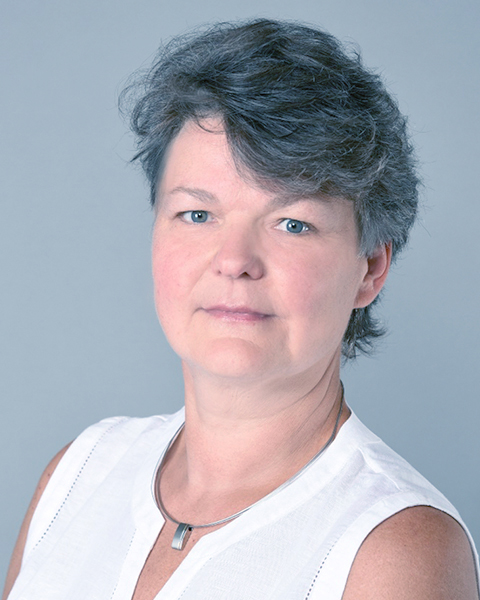
University Medical Center Hamburg-Eppendorf (UKE), Center for Psychosocial Medicine, Department of Child and Adolescent Psychiatry
Current position
Head of research group family research and psychotherapy, Head of outpatient clinic for families at the Department of Child and Adolescent Psychiatry, Psychotherapy and Psychosomatics, W3-Professor for clinical Psychology and Psychotherapy at the Medical School Hamburg
Contact
Tel.: +49 (0) 40 7410 – 53603
Mail: s.wiegand-grefe@uke.de
Role within partner site
Co-Principal investigator in research area Clinical Research and Involvement
of patients, carers and the public
Relevant Work experience
2013 Habilitation in Clinical Psychology and Medical Psychology (UKE)
Since 2011 Professor (W2) and since 2014 (W3) for clinical psychology and psychotherapy at the MSH
Since 2004 Head of research group family research and psychotherapy at the UKE
Main research focus
Severe chronic illness in families; family based prevention; interventions
for families with SMI
Publications
Patents N.A.
Additional information
Since 2018 member of the subcommittee “Psychotherapy Guidelines
Examination” in the GB-A and a deputy member of the subcommittee “Psychotherapy” in the GB-A.
Since 2018 Member of the AWMF S3-guideline: Borderline disorders,
and since 2020: Member “National Clinical Practice Guideline Depression“
Since 2017 spokeswoman for university professors in the German Society
for Psychoanalysis, Psychotherapy, Psychosomatics and Depth Psychology (DGPT) in the extended board
2017 – 2019 Member of the interministerial work group (BMG [Federal Ministry of Health], BMBFSJ [Federal Ministry for Family Affairs, Senior Citizens, Women and Youth], BMAS [Federal Ministry of Work an Social Affairs] and Drug Commissioner) “Help for Children of Mentally Ill Parents”
2011 Innovation price for prevention and innovation at the KKH Allianz (Health Insurances) for the CHIMPS-Project for Families with SMI
Since 2009 spokeswoman of the federal working group (BAG-kIPE) for children of mentally ill parents